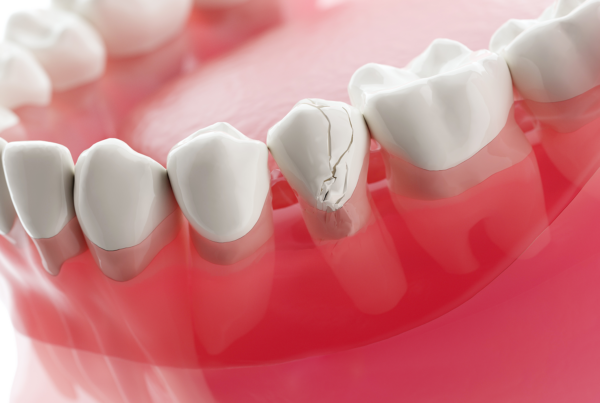From whispers about the infamous ‘root canal’ to the unsung heroes who make it seamless, there’s a lot to chew on. Welcome to the realm of the endodontist, the specialist with a magic touch for all things deep within our pearly whites. In this blog, we’ll demystify the world of endodontics. What sets them apart from your everyday dentist? When should you seek them out? And do you really need that referral? Let’s unravel these mysteries, so the next time your tooth gives you a signal, you know exactly where to turn!
 Should I See an Endodontist for a Root Canal?
Should I See an Endodontist for a Root Canal?
If you’ve ever heard someone speak about getting a “root canal,” you may instantly think of pain, discomfort, and long hours on a dental chair. But did you know that a root canal is actually a procedure meant to save your tooth, and not cause you discomfort? When it comes to this specialized treatment, it’s an endodontist you’ll likely want on your side.
Why an Endodontist Makes the Difference
An endodontist is a specialist who has undergone additional years of training specifically for root canal treatments and other related procedures. This means they’re not just acquainted with the process—they’re masters of it.
KEY TAKEAWAY: If you’re looking to have a root canal done, an endodontist can ensure a smoother, more efficient procedure with minimal discomfort.
 Why Do I Need to See an Endodontist?
Why Do I Need to See an Endodontist?
Root canals are just the tip of the iceberg. Sometimes, issues like deep decay, infections, or dental trauma can reach the inner pulp of your tooth, and that’s where an endodontist steps in. Their expertise ensures that the very core of your tooth gets the TLC it deserves.
Precision and Advanced Equipment
Endodontists often employ specialized tools and techniques, like microscopes for enhanced precision. This level of precision means quicker recovery times and better outcomes for patients.
KEY TAKEAWAY: An endodontist’s skill set goes beyond the basics, ensuring that even complex tooth problems are addressed with utmost care.
 What Procedures Does an Endodontist Perform?
What Procedures Does an Endodontist Perform?
Diving deeper than the regular dental care, endodontists play a pivotal role in maintaining the vitality of our teeth. Beyond the widely recognized root canal treatments, these specialists bring to the table a suite of procedures that address the inner intricacies of our teeth.
Diagnosing Tooth Pain: A pain in your tooth isn’t always straightforward. It could be a fleeting sensitivity, a deep-rooted infection, or even referred pain from another area. Endodontists are trained detectives in this regard, pinpointing the exact cause and recommending an appropriate course of action.
Endodontic Retreatment: Picture this – you’ve gone through the whole root canal procedure, but something’s amiss, and it hasn’t healed quite right. Rather than starting from scratch, an endodontist can revisit the treated tooth and ensure that it’s set on the right path to recovery. This “do-over” ensures that any missed canals or lingering infections are aptly addressed.
Apicoectomy: A fancy term for a straightforward procedure. Sometimes, even after a root canal, infections can be stubborn and cling to the roots of the tooth. In an apicoectomy, the endodontist removes the tip of the root and the infected tissue, sealing off the end. This can be a game-changer in ensuring long-term tooth health.
Dental Trauma Management: Life is unpredictable. A slip here, a bump there, and suddenly, you’re staring at a tooth out of its socket or misaligned in your mouth. Endodontists are the first responders in such dental emergencies, adept at repositioning dislodged teeth, stabilizing injured ones, or even guiding the replantation of completely knocked-out teeth.
Pulp Vitality Tests: Ever wondered how alive your tooth really is? Endodontists use specific tests to determine the health of the dental pulp – the innermost part of the tooth. These tests help decide whether a tooth requires a root canal or if other treatments might be more suitable.
KEY TAKEAWAY: Endodontics isn’t just about root canals. With a range of specialized procedures under their belt, endodontists ensure the heart and soul of our teeth—the pulp—remains healthy and functional.
 What is an Endodontist vs. Dentist?
What is an Endodontist vs. Dentist?
Navigating the dental world can sometimes feel like deciphering a puzzle. With various specialties and terms thrown around, it can be easy to wonder who does what. Two terms that often get juxtaposed are ‘dentist’ and ‘endodontist’. While there’s overlap, they play distinct roles in our oral health journey.
The Basics: At the foundational level, all endodontists are dentists. They’ve completed dental school and can perform general dental procedures. However, the distinction emerges in their specialization. Imagine it this way: an endodontist is to a dentist what a cardiologist is to a general physician. While both are doctors, one specializes in heart-related issues, and the other in broader health concerns.
Education & Training: The journey to becoming a dentist involves several years of intensive study, covering everything from oral anatomy to preventive care. Upon completing dental school, some choose to dive deeper into specific niches. Enter the endodontist. They embark on an additional 2-3 years of specialized training, focusing intensely on the tooth’s inner workings, namely the pulp, and the diseases and conditions that affect it.
Scope of Practice: General dentists are the jack-of-all-trades in the dental realm. From cleanings to fillings to extractions, they handle a broad spectrum of oral health needs. Endodontists, meanwhile, are like the elite task force called in for specific missions. Their spotlight shines on diagnosing tooth pain, root canal treatments, and other procedures involving the tooth’s pulp and roots.
Tools & Techniques: While both dentists and endodontists use advanced dental tools, endodontists often employ more specialized equipment tailored to their niche, such as dental operating microscopes, ultrasonic instruments, and digital imaging systems. These tools enable them to diagnose and treat with greater precision.
Consultation Frequency: Typically, you’d see your general dentist for bi-annual check-ups or when you have common dental issues. Endodontists, on the other hand, are usually a one-off visit or for a specific set of treatments. They step in when there’s a complex challenge that requires their particular expertise.
KEY TAKEAWAY: Think of your general dentist as your go-to for routine dental needs and the endodontist as the specialist you consult for specific concerns, particularly those involving the inner tooth. Recognizing the unique strengths of each can empower you to make informed decisions about your oral health.
 Can You See an Endodontist Without a Referral?
Can You See an Endodontist Without a Referral?
While many patients visit endodontists through referrals from their general dentists, it’s not always mandatory. If you’re experiencing severe tooth pain or believe you need specialized care, you can directly schedule an appointment with an endodontist. It’s all about getting you the care you need, as soon as possible.
KEY TAKEAWAY: Don’t wait in pain! If you believe you need an endodontist, feel free to reach out directly.
 Conclusion
Conclusion
Your teeth are invaluable, and ensuring they get the right care is crucial. Whether it’s the intricate work of a root canal or managing dental trauma, an endodontist brings specialized knowledge to the table. If you’re ever in doubt, remember: when it comes to the inner workings of your teeth, an endodontist is your go-to specialist. Ready to book a consultation with our clinic? We’re here to help, ensuring your smile remains bright and healthy!








